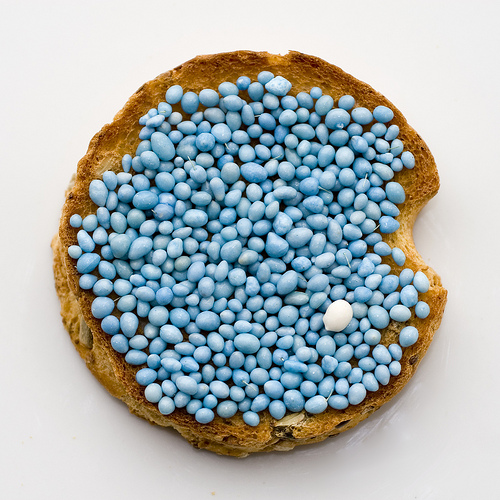Transferring your whole life overseas, means transporting a lot of goods across the globe. All of these will need to pass through customs, before they are allowed into the Netherlands. This can set expats back a significant amount of money. Luckily, if you are coming to the Netherlands from a non-EU member state, you might be eligible for exemption from customs duty. We will explain which conditions you need to meet, and how you can apply for an exemption, on this page.
What is Customs Duty?
When you send goods from a non EU-country to an EU-Member State, such as the Netherlands, they will have to go through customs. Customs will check that your items do not contain or consist of anything that is banned or restricted. In order for your goods to pass through customs, you might be charged:
- Customs duty
- VAT, or
- Other special taxes
- Cars, for example, are given a special tax
Issues with Customs Duty
- When you move your whole life to another country, like the Netherlands, you will have a lot of goods to send!
- The taxation you incur to import these products can be a great financial burden on you
- If you regularly change your place of residence, for work or for other purposes, then it can become even more of a problem
- If you meet certain conditions, you can be exempt from customs duty
- This can provide substantial financial relief to frequent ‘relocaters’
Securing an exemption
It is possible to secure an exemption from customs duty from all EU-Member States, including the Netherlands. Here are the basics:
- Typically, your removal company will apply for an exemption from customs duty on your behalf
- They will ensure that you make optimum use of the exemption possibilities available to you
- Removal companies should also take care of the administrative obligations involved in the procedure
- Ultimately, however, it is the Customs Authorities who will have the final say in whether you meet the necessary conditions to be exempt
PERSONAL EFFECTS
You can be exempt from customs duty if your imported goods form part of what the authorities refer to as your ‘household effects’ or your ‘personal’ ‘effects’. This term applies to things like:
- Clothing
- Furniture
- Linen
- Kitchen equipment
- Audio equipment
Less Obvious Items
Personal effects can also be used to describe items, such as:
- Used cars
- Bikes and motor bikes
- Pleasure yachts
- Pleasure aircraft
Exemption Permit
What exactly does exemption from customs duty look like?
- An exemption will be issued in the form of a permit
- Usually the Customs Authorities will issue you one permit for your personal goods and another separate license for your car
- In order to obtain either permit, you will have to fill out an application form
 Tip
Tip
Does your Car Qualify?
Under certain circumstances, a car might be regarded as a personal effect. If it is, then it will be eligible for exemption from customs duty. In order for your car to be regarded as your personal property:
- You must be a ‘natural person’
- The car must have been made available to you by your employer
- It must be used by you for both business and private purposes
Conditions for exemption in NL
 The exemption for household effects, when you move your permanent place of residence to the Netherlands, is subject to a number of strict conditions. However, by adhering to them, you can make some worthwhile savings on importation duties
The exemption for household effects, when you move your permanent place of residence to the Netherlands, is subject to a number of strict conditions. However, by adhering to them, you can make some worthwhile savings on importation duties
So, in order to claim relief from customs duty, what are the conditions you need to meet? Here is the list:
Exemption Stipulations
- Your usual place of residence must be transferred to an EU-Member State. In this case, the Netherlands
- For at least 2 months before your move to Holland, your usual place of residence must have been a non-EU Member State
- The goods you wish to transfer must have been in your personal possession before your move. They must have been used by you for at least six months leading up to your transfer. In exceptional cases, however, the authorities may grant an exception to this requirement
- You must apply for a Dutch residence permit
- With your exemption request, you should submit a signed list of your household effects and other goods you wish to be moved
Your Goods
- Your goods must meet the usual customs requirements when they come to be imported
- The goods must be imported within 12 months of your actual change of residence
- Your personal effects may be transported in several, separate sessions. Each one must, however, be directly linked to your change of residency
- Once your goods have reached the Netherlands, you must use them for the same purpose as you did in the country from which you are moving
- Lending, hiring out, transferring or otherwise disposing of your transported goods is forbidden for a period of 12 months, following the Customs Authorities’ acceptance of your customs declaration
Proof of residency outside of NL
As we mentioned earlier, one of the conditions upon which you can request exemption from customs duty is that you changed your place of permanent/usual residence. This change must have been made from a non EU-country to the Netherlands. You must also have been a resident of the non EU-country for at least 12 months, preceding your move.
The customs authorities will view your official country of residence as the place in which the majority of your work and personal connections lie. In order to determine which country this is, the following factors will be taken in to account:
Work and Personal Ties
- Where your family and other personal relations live
- Memberships
- Municipal registration
- A physical fixed home, either owned or rented
- Other sources of income
- Your nationality
- Physical presence; i.e. where you spend the majority of your time
- Other living space
- Where you carry out your work
- Financial interests
- Your administrative ties with the government and other social institutes
Expat Exemption Issues:
- It is up to you to prove that you were an official resident of your former non-EU country of residence, for at least 12-months
- If you are deemed to have been a resident of more than one country, remember that it is the country with which the majority of your personal connections exists that will be considered your place of residence
- If, for example, your family remained in the Netherlands while you worked in a non EU-country for a period of two years, the Customs Authorities would still regard the Netherlands as your country of residence
- Consequently, your ‘return’ to the Netherlands will not qualify as a change of residence, and you would not meet the conditions to be exempt from customs duty
 Side Note
Side Note
Moving to NL from an EU-Member State
What if you wish to import goods from another EU member state?
- You will have to pay EU VAT on products being transported to the Netherlands from the EU
- Therefore, securing an exemption from customs duty will not be of any use unfortunately
- There are, however, different rules regarding cars. Read more about this in our article entitled: ‘Should you keep your car?‘
Revocation of the exemption in NL
What happens if you break the rules, after you have been given a permit to relieve you from customs duty in NL?
- Your exemption could be revoked, after your permit has been granted and your goods imported
- If you lend, hire out, transfer or otherwise dispose of any of the household effects that you imported to another party within 12 months of your relocation to the Netherlands, you will have your permit revoked
- This goes for your car as well, so you need to be careful
- No one can borrow your car, even for a short while, during your first 12 months in the EU
- You will be liable to pay the duties and tax from which you were initially exempt immediately if you are found out to have leant your car to someone
- The aforementioned 12 months technically start on the date on which the Customs Authorities accept the customs declaration
 Useful links
Useful links
- The Dutch International Tax Office
Postal address: P.O. Box 2865, 6401 DJ Heerlen
Visiting address: Kloosterweg 22, 6412 CN Heerlen (by appointment only)
Tel.: 0800 05 43 (National telephone number) - Dutch Customs
- The Dutch Customs information line

Everything you need to know about c ...
As an expat in the Netherlands, there might be a couple of traditions that will ...

The UnDutchables 9.0
Following the legendary previous eight editions of The UnDutchables, the 9th edition of this all ...

Gift giving in the Netherlands-all ...
If you feel like skipping your birthday, you may be in for a challenge when ...

The American Netherlander - 25 Year ...
In 1994, author Greg Shapiro came to the Netherlands. The idea was to spend a ...

How to Meet Locals in Amsterdam
Being far from home in a foreign city or country can be one of the ...

Typical Dutch Festivities
In the Netherlands, the Christmas season is marked by a sequence of typical Dutch festivities ...

Special Occasions the Dutch way
The Dutch love to mark a special occasion. What's more, for each one, they ...

Dutch Customs and Etiquette
The Netherlands has its own unique set of customs. There is an etiquette for how ...